Director: Nah Hyeon
Cast: Kim Rae-won, Han Seok-kyu, Han Suk-Kyu, Kim Rae-Won, Jung Woong-In, Kim Sung-Kyun, Shin Sung-Rok, Han Sung-Yong, Lee Geung-young, Cha Yup
Running Time: 125 min.
By Paul Bramhall
In years to come, when people look back on the 2015 – 2016 era of the Korean film industry, it may well look like all it took for a movie to get green lit is for it be about figures in authority abusing their powers. The list is expansive – Inside Men, Veteran, A Violent Prosecutor, Master, The King, and there are likely more that have gone under the radar. However despite the recurring theme, all of the productions mentioned have been entertaining slices of cinema, whether they choose to wrap their tales of corruption in the guise of a thriller, action movie, or crime caper. On paper, The Prison would also seem to fall into the same category, with its name inevitably likely to draw immediate comparisons with Korea’s other 2016 prison-set production, A Violent Prosecutor.
Thankfully onscreen though, it turns out to be quite a different beast. Helmed by experienced scriptwriter Nah Hyeon, whose pen has been behind the likes of Spin Kick and My Way, here he makes his debut as a director, and as expected works from his own script. The 1995 setting serves as a breath of fresh air compared to other recent productions, and while the year never plays a particularly important role in the story (it’s never specifically mentioned apart from onscreen text at the beginning), the absence of smartphones and presence of 90’s style beer bottles provide subtle but welcome differentiators.
Hyeon also chooses to go with a mostly veteran cast, with Kim Rae-won, last seen on the big screen in 2014’s Gangnam Blues, playing a new inmate who is introduced as a former cop. Quick tempered, he’s barely a few steps out of the prison bus and is already trying to kick the daylights out of an inmate that was staring him down, despite being bound by rope. Rae-won’s introduction to inmate life sees The Prison heading down familiar territory, as just like Hwang Jeong-min’s character in A Violent Prosecutor, Rae-won quickly finds himself on the receiving end of savage beatings from those he was responsible for putting away in his former life. However unlike in A Violent Prosecutor, Hyeon keeps his cards close to his chest during the opening act of The Prison, taking a gamble with feeding the audience little to no information as to exactly why Rae-won is serving time.
Rae-won eventually ends up crossing paths with the most powerful prisoner inside, a character who the other inmates explain even has the prison warden in his pocket. The prisoner is played by Han Seok-kyu, an actor who featured in many of the 90’s Korean movies that are today considered early classics of the Korean new wave – from Lee Chang-dong’s 1997 debut with the gangster drama Green Fish, to Jang Yoon-hyeon’s blood drenched murder thriller Tell Me Something in 1999. Seok-kyu was also the star of the movie that can essentially be considered as the one that put Korea on the map for international audiences, Shiri. After being laden with some cringe worthy English dialogue in Ryoon Sung-wan’s 2013 action thriller The Berlin File, The Prison finds Seok-kyu on top form once more, and he provides an intimidating presence as the top dog.
Rae-won eventually ends up under the wing of Seok-kyu, and learns that not only is he the most powerful prisoner, but he’s also a criminal mastermind behind several unexplained murders that have taken place on the outside. Taking a page from Erik Matti’s On the Job, Seok-kyu has developed a well-oiled machine, that has the warden meeting up with a former inmate on the outside who provides the target, which is then relayed back to Seok-kyu and his associates on the inside. Groups of inmates are then sent out to perform the assassinations, before returning to prison, leaving in their wake a murder and a lack of any suspects to point at.
As Rae-won’s involvement with Seok-kyu and his prison gang develops, Hyeon begins to work in several flashback scenes (which it would be a spoiler to provide any details on) of Rae-won’s life on the outside, as a clear picture begins to emerge of both how and why he’s behind bars. While neither the prisoners-on-a-mission, and Rae-won’s eventual reveal, are particularly ground breaking, The Prison proves to be successful in its no nonsense approach to the tale it wants to tell. Indeed in many ways Hyeon’s debut feels like it could also belong to the era that it’s set in. Despite it being likely to be painted with the same brush as other recent productions, The Prison feels like it would sit more comfortably next to the likes of gangster movies like Oh Seung-uk’s Kilimanjaro from 2000, and Yoo Ha’s A Dirty Carnival from 2006.
Eschewing the subtle (or not so subtle for that matter) swipes at those in positions of authority that similar recent productions have gone for, Hyeon’s narrative is more focused on cramming in as many brawls and beat downs as possible. Despite mostly being set within the walls of the prison, the setting never feels confining, and there’s a surprising amount of action contained within the 125 minute runtime. From Rae-won’s fist fights with other prisoners, to a heist that throws in some unexpected MMA takedowns, to the chaotic group brawls with steel bars and choppers. The return of a movie that embraces the down and dirty style of Korean brawling, that appeared so frequently in movies throughout the 00’s, is a most welcome one, and the fact that the production had a dedicated martial arts team on-board is clearly evident.
Outside of the fists and feet, Hyeon doesn’t skimp on the violence either. An early remark that the last gang leader to try and topple Seok-kyu from his position had his eye ball carved out and devoured in front of his face is given credence, when another gang leader attempts a coup against him mid-way through the movie. It’s a credit to Hyeon that, much like the chainsaw-in-the-shower scene in Brian De Palma’s Scarface, it was only after the movie finished that I realised nothing particularly graphic was actually shown onscreen. However thanks to some smart editing and grizzly sound effects, the scene certainly leaves a lasting impression.
Rae-won and Seok-kyu are ably backed up by a fantastic supporting cast. Like Inside Men, The Prison doesn’t feature a single female cast member (with the exception of the opening 5 minutes, when one appears onscreen for less than 60 seconds), making it a very testosterone fuelled affair. Lee Kyeong-yeong, who played the presidential candidate in Inside Men, here plays the head of the Korean prison system, and is given a fantastically tense scene when he recognizes Seok-kyu from a prison he used to run, and begins taunting him to bow his head to the ground. Jung Woong-in, last seen in Veteran, also puts in an effective performance as the prison warden, who’s conflicts with Seok-kyu soon finds him in over his head. Sin Seong-rok, who also appeared in 2016’s Age of Shadows, also deserves a mention as the leader of a rival gang that wants to topple Seok-kyu.
At the time of writing The Prison is still very much hot off the press, and I feel there’s a risk it may be overlooked due to its similarities with A Violent Prosecutor. However these exist only on the surface thanks to their setting, with one being a crime caper, and the other a violent gangster movie. Hopefully The Prison finds it audience, and they enjoy it for the entertaining slice of revenge that it is. Hyeon has a refreshingly unpretentious directorial style, and if he decides to step into the director’s chair for a second time, I’ll certainly be watching. It’s been said many times before, but movies like The Prison prove it’s still as applicable in 2016 as it was in the early 00’s – nobody does the revenge movie quite like the Koreans do.
Paul Bramhall’s Rating: 7/10



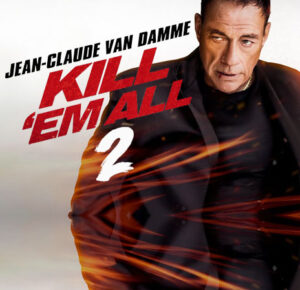

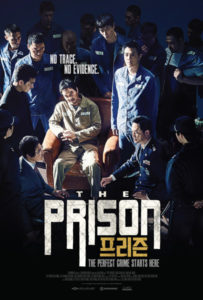

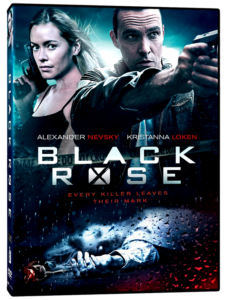
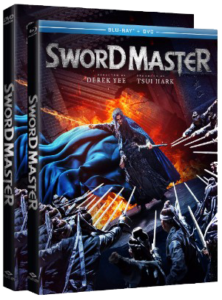
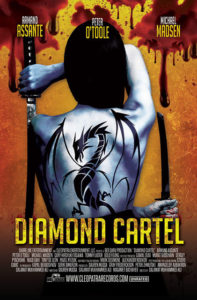
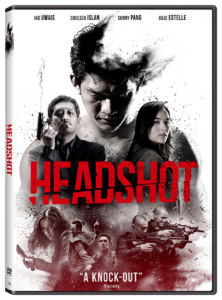
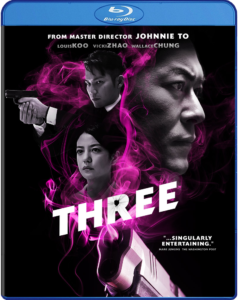
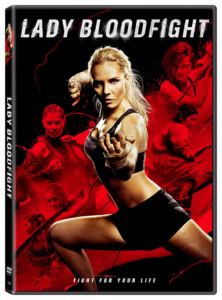
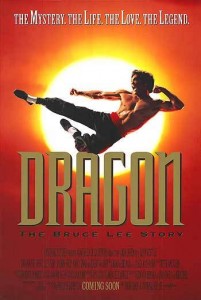
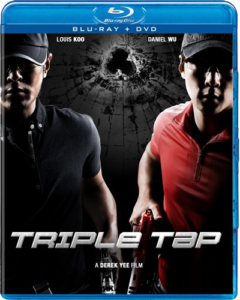
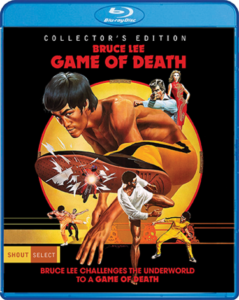
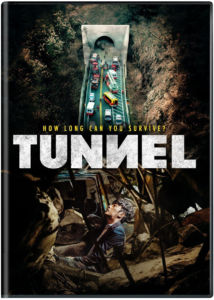
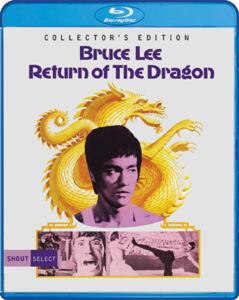
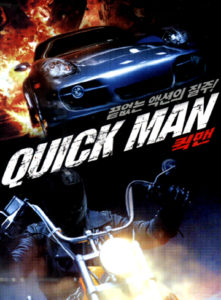
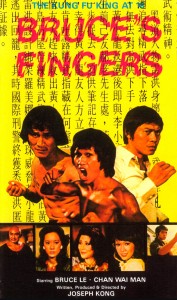




Be the 1st to Comment